Proper fertilization is a must if your eyes are set on establishing a lush green, thick turf. It ensures that germinating seeds and growing grass have enough nutrients to keep up the healthy growth.
In addition to that, proper fertilization also makes sure that your lawn appears fuller, thicker and greener. In this article, let’s discuss the best time to fertilize lawn before or after rain.
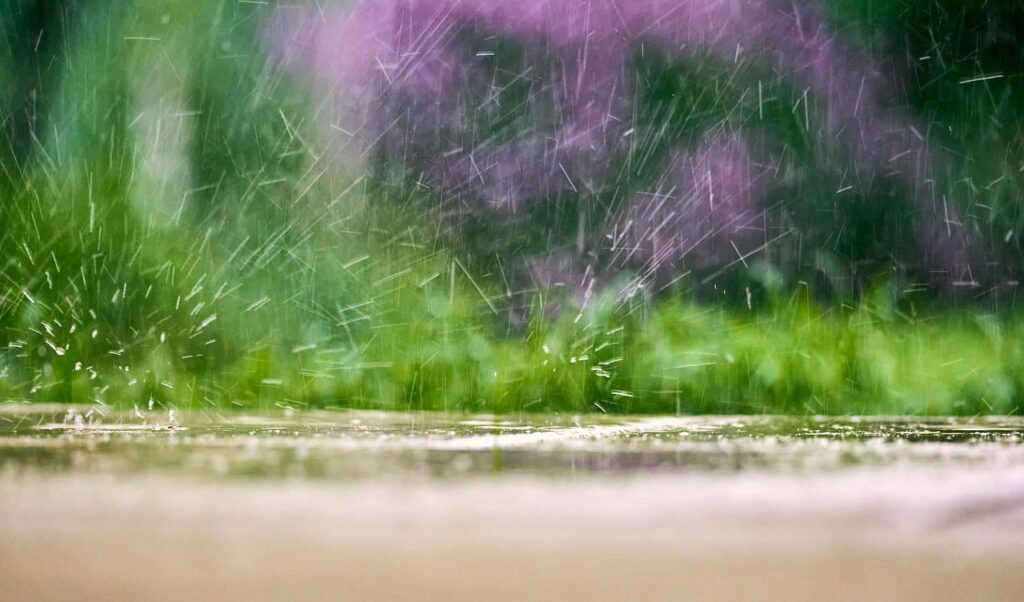
Proper fertilization of the grass is as vital as proper lawn care.
Figuring out when, how, and which fertilizer you should use on your lawn is pretty straightforward. However, people often raise questions about lawn fertilization in specific contexts. One of such questions is, should I fertilize my lawn before or after rain?
Some gardeners suggest fertilizing the lawn before the rain. It increases nutrient absorption into the soil, making more nutrients available to growing grass. On the other hand, some lawn owners are strictly against fertilizing the lawn before the rain, as a heavy downpour can easily wash away nutrients out of the lawn.
Having said that, there is still a lot more you need to know and understand before you can decide whether you should fertilize your lawn before or after rain, and we are here to help you out. So, let’s dive right in!
Why Do You Need To Fertilize The Grass?
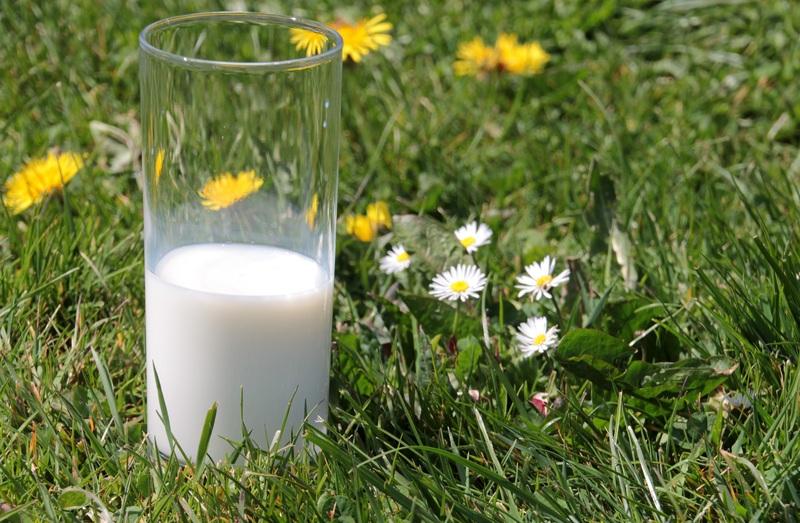
Nitrogen-rich fertilizers make the lawn grass appear clean, green and serene.
The soil on its own has a natural supply of many nutrients necessary for grass growth. However, most soils cannot provide all the nutrients or an adequate supply of the needed nutrients for healthy grass lawn growth on their own.
In addition to that, grass needs various nutrients in different concentrations during various stages of its growth which a lawn soil alone cannot provide in most cases.
That is why you will need to fertilize your lawn time and again to promote healthy grass growth.It will also help if you understand what a fertilizer is made up of and what role those elements play in grass growth.
This will also guide you in choosing the right fertilizer for your grass. Below is a list of the three most critical components of a lawn fertilizer:
Nitrogen
Nitrogen is arguably the most critical nutrient for grass growth. It helps with the formation of plant proteins needed by the cells of grass to grow. Nitrogen is also the primary nutrient that makes the grass green and thick.
Without adequate nitrogen in the soil, grass can turn yellow and show stunted growth. Lawn soil receives some nitrogen from rain and grass clippings after mowing. However, more often than not, you will need to add fertilizer to ensure adequate nitrogen supply.
Phosphorous
Phosphorus is another key nutrient for grass growth. Even though plants, including grass, require only a small amount of phosphorus, its adequate supply is essential. Phosphorus plays a vital role in root growth and grass energy supply.
Without phosphorus, root growth will take a severe hit. As a result, growing grass will be weaker and more prone to drying out in water stress. Therefore, adding phosphorus is very important, especially when establishing a new turf or planting seeds.
Potassium
Adding potassium is like immunizing your soil against stress, diseases and drought. It makes the grass stronger and helps the turf tolerate extreme weather conditions. In addition to that, potassium is also required for the optimal use of nitrogen by the grass.
Depending on the soil, you will need to add different amounts of potassium to the lawn. According to the University of Prude, if the lawn soil has 0 to 25 ppm of potassium, you will have to add six pounds of potash per 1000 square feet of the lawn.
RELATED: How To Identify and Treat Common Fungal Diseases Of The Lawn | A Comprehensive Guide
When To Fertilize Your Lawn?
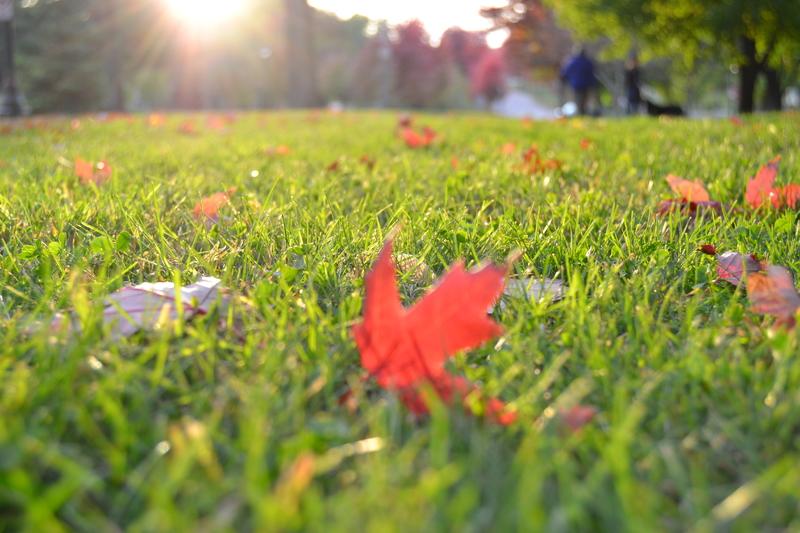
The best time to apply a fertilizer depends on the grass type, your location, and your fertilizer.
Unlike what some people do and most fertilizer companies suggest, you do not need to continuously fertilize your grass, all year round.
In fact, overfertilization is as harmful to the grass as under fertilization. Experts usually suggest that you fertilize your lawn at least two times in a single year.
However, the best time to apply a fertilizer will vary depending on the grass type, the fertilizer being used, and your location.
Best Time To Fertilize Warm-season Grasses
Warm-season grasses such as St. Augustine grass, Bermuda grass and Centipede grass need to be fertilized in late fall when they break dormancy and then again in September through November when they are actively growing.
Best Time To Fertilize Cool-Season Grasses
In contrast to warm-season grasses, cool-season grasses such as Kentucky bluegrass, Fescue grass and Perennial ryegrass need to be fertilized from late summer through autumn. It makes the grass tolerant to summer heat and keeps it from dying.
How Does Rainfall Affect Fertilization Of The Lawn?
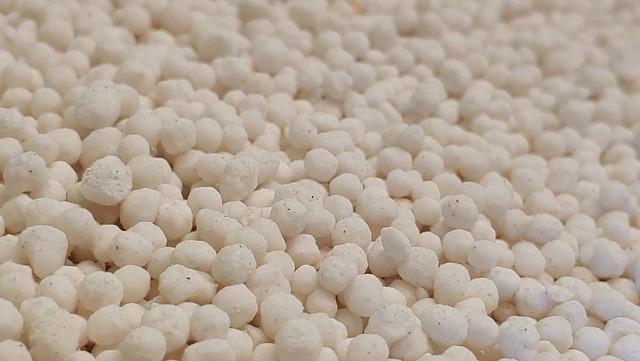
Granular fertilizers are better suited for areas where it rains a lot.
If you have ever seen it raining, you must know that with it comes water, the blood and the spirit of all life on earth. Water is an excellent solvent, it can dissolve a lot of fertilizer in it, and when the water seeps into the ground, it can take fertilizer along.
As a result, the rate at which fertilizer and nutrients are absorbed into the soil increases, which is good for the growing grass, no? Well, it is not that simple! If it rains too heavily, water will start flowing all over your lawn, especially if it is a steep one.
This will result in fertilizer or nutrient runoff which is bad for the growing grass and soil health. How the rain affects fertilizer also depends on the fertilizer form, as described in the paragraphs given below.
Granular Fertilizer & Rain
If it rains just after applying a granular fertilizer to your lawn, there is no need to panic. Granular fertilizers are designed to be watered after application. Water activates the fertilizer product. So, all that rain will do is reduce your work.
In other words, rain is good for fertilizers that come in the form of granules. However, if it rains heavily, it can wash off granules and spread them in the surrounding areas of local bodies of water, which is bad for the environment.
Liquid Fertilizers & Rain
If you use liquid fertilizer on your lawn instead of granular fertilizer, things will work differently if it rains. Liquid fertilizers get absorbed into the grass tissue by the exposed surfaces of the grass. Therefore, they need to remain on the grass for at least 30 minutes.
Suppose it rains right after applying a liquid fertilizer to your grass. In that case, the water will wash off the fertilizer from your grass. Now, even if the fertilizer gets absorbed into the soil, the grass won’t be able to use it, and it will all go in vain.
So, Should You Fertilize Your Lawn Before Or After Rain?
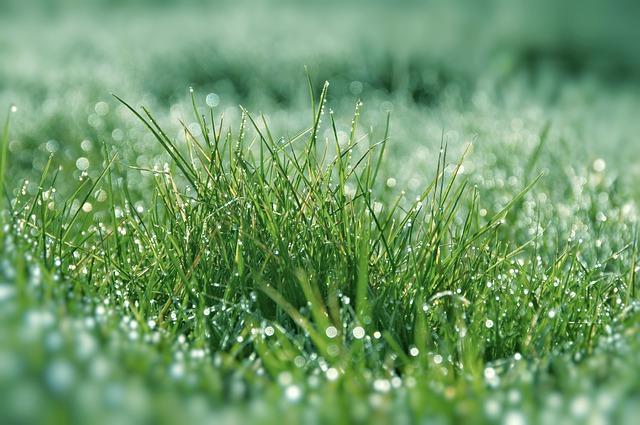
Applying fertilizer before it rains comes with the risk of fertilizer escaping the water runoff.
Most experts suggest that you should water your lawn after it rains. It is a more eco-friendly option. This way, you do not risk polluting the surrounding area and neighboring water bodies with harmful fertilizer chemicals.
Moreover, the soil and grass remain wet long enough after rain for you to take advantage of the fertilizer dissolving properties of the water. So, we suggest that you fertilize the lawn after it rains and here are a few tips for that:
- Wait for at least 24 hours after it rains before adding fertilizer to your lawn. There won’t be any standing water on your lawn by this time, but it will still be moist.
- Do not apply the fertilizer to water-saturated soils. It can result in nutrients leaching too deep into the ground where they will be out of the reach of the grassroots.
- Check the weather forecast and make sure that it won’t rain again, especially if you are using a liquid fertilizer.
RELATED: Dethatching St. Augustine Grass: A Complete Step By Step Guide
Conclusion – Best Time To Fertilize Lawn Before Or After Rain
If it does not rain too heavily, you can apply fertilizer to your lawn before and after the rain. However, care should be taken with liquid fertilizers in case there is a rain prediction. Rain can affect the liquid fertilizer negatively and reduce its efficiency.
Granular fertilizers, on the other hand, are more tolerant to rain. This is because they need water to become activated and get absorbed. However, a heavy downpour can wash off fertilizer granules, making nutrients available for the grass growth.
All in all, it is best to wait and fertilize your lawn after it rains. Then, you will not risk the fertilizer washing off, and the soil will still be wet enough to help dissolve the fertilizer.
Frequently Asked Questions
How long should fertilizer be down before it rains?
You should make sure that rainfall is not expected for at least 48 hours from when you fertilize your lawn. It is especially important when using a liquid fertilizer or when there is a heavy downpour expected. You might have options if you are using granular fertilizer or only a light shower is predicted.
Can you put fertilizer on wet grass?
If the grass is not waterlogged, then you can put fertilizer on the wet grass, provided that you are using a fertilizer that is meant to be diluted.
What happens if it rains after you fertilize your lawn?
Rainfall just after fertilization is not necessarily bad unless you use a liquid fertilizer, and the downpour does not get too extreme. A little shower after fertilization can, in fact, increase fertilizer absorption and effectiveness.
When should you not fertilize your lawn?
Do not fertilize your grass during drought stress and when heavy rainfall is expected. During these times, grass will not be able to take advantage of the added nutrients.
How much rain is OK after fertilizer?
If it is just a light shower, it is perfectly OK, and if it is a heavy downpour, it is not okay!
Sources For Further Reading
- Pros and cons of granular and liquid fertilizers – Michigan State University Extension
- Choosing Fertilizers for Home Lawns – University of Illinois Extension
- Fertilizing the Lawn in the Home Landscape – University of Maryland Extension
Now you know the best time to fertilize lawn before or after rain. Also, check out our other articles:
St. Augustine Grass Vs. Bermuda Grass: What’s The Difference And Which Is Better?
Why Is My Grass Turning Yellow And How To Fix It Fast?
Planting, Mowing And Watering Bermuda Grass Lawn | How To Do It Right?







